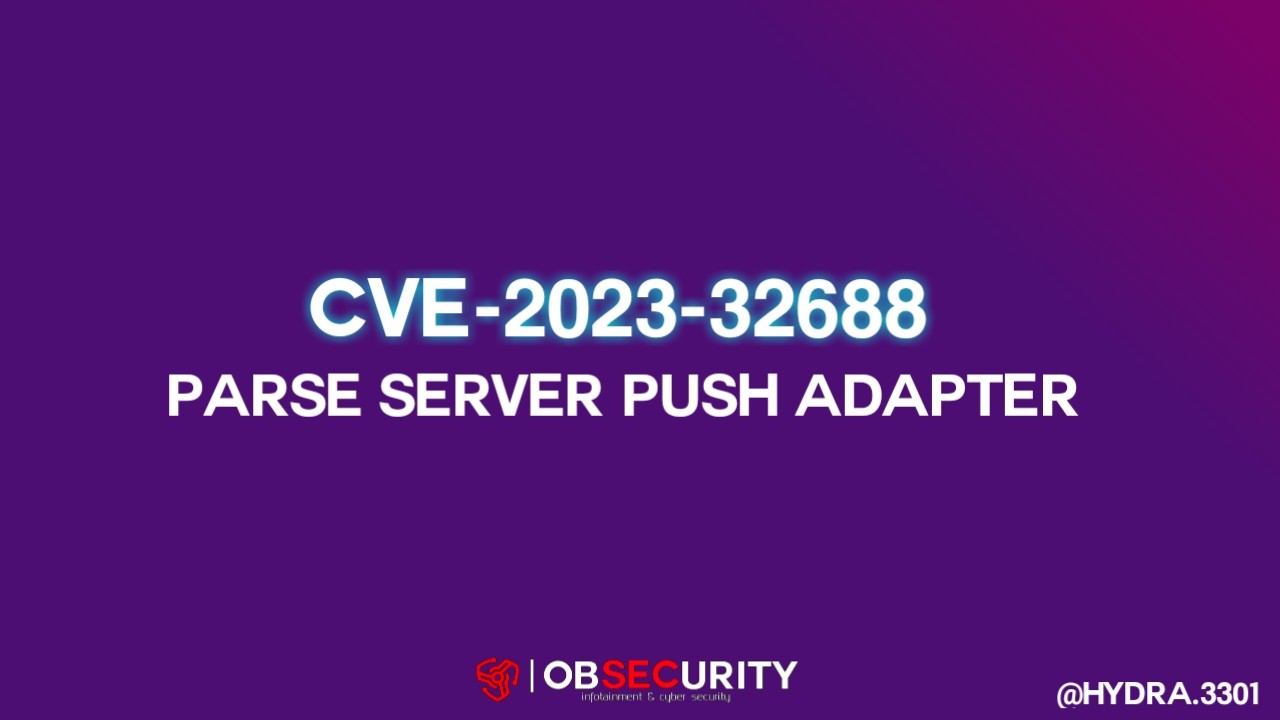
Addressing CVE-2023-32688: Ensuring Stability and Security with Parse Server Push Adapter
Introduction
In the world of app development, push notifications play a crucial role in engaging users and delivering timely information. Parse Server, a popular open-source backend solution, provides the ability to send push notifications to mobile devices. However, it has recently come to light that the official Parse Server Push Adapter, specifically the parse-server-push-adapter, has a vulnerability known as CVE-2023-32688. This vulnerability can potentially crash Parse Server due to an invalid push notification payload. In this blog post, we will delve into this issue and explore steps to ensure stability and security when using Parse Server Push Adapter.
Understanding the CVE-2023-32688 Vulnerability
CVE-2023-32688 is a security vulnerability that affects the parse-server-push-adapter, the official Push Notification adapter for Parse Server. The vulnerability arises when an invalid push notification payload is received by Parse Server, leading to a crash. Such crashes can result in service interruptions, loss of data, and potential security risks for the affected application.
Impact and Risks
The impact of this vulnerability can be significant, as it can disrupt the functioning of the entire Parse Server. The crash may lead to unavailability of push notifications, affecting user engagement and communication. Additionally, the crash could potentially provide an entry point for malicious actors to exploit the system further, potentially compromising sensitive user data.
Mitigating the Vulnerability
To ensure stability and security with Parse Server Push Adapter, it is crucial to take appropriate measures to address the CVE-2023-32688 vulnerability. Here are some recommended steps:
Update to the Latest Version: Check for updates from the Parse Server community and ensure you are using the latest version of parse-server-push-adapter. Developers and maintainers often release patches and fixes to address known vulnerabilities. Upgrading to the latest version will help protect your application against CVE-2023-32688 and other potential security threats.
Implement Input Validation: Perform thorough input validation on the push notification payload before sending it to Parse Server. Validate the payload format, data types, and lengths to ensure they adhere to the expected specifications. By doing so, you can prevent the submission of invalid payloads that may trigger the vulnerability.
Enable Error Handling and Logging: Implement robust error handling mechanisms in your Parse Server setup. By catching and logging errors related to push notifications, you can gain insights into potential issues and identify the root causes. Effective error handling allows you to react promptly to problems and take appropriate actions to mitigate them.
Conduct Security Audits: Regularly perform security audits and code reviews to identify any potential vulnerabilities in your application. Engage security professionals or conduct penetration testing to assess the overall security posture of your Parse Server implementation. Such audits can help uncover any unaddressed vulnerabilities, including CVE-2023-32688, and enable you to take proactive measures to mitigate them.
Conclusion
CVE-2023-32688 poses a potential risk to the stability and security of applications utilizing the parse-server-push-adapter for Parse Server. However, by following the recommended steps outlined in this blog post, developers and administrators can safeguard their applications against this vulnerability and ensure a robust push notification system.
Regular updates, input validation, error handling, logging, and security audits should be part of the development and maintenance practices for any application utilizing Parse Server Push Adapter. By taking a proactive approach to address vulnerabilities, developers can provide a secure and reliable user experience, enhancing the overall quality of their applications.
Remember, maintaining a strong security posture is an ongoing process, and staying up to date with the latest security best practices and patches is crucial for the long-term success of your application.
References: National Vulnerability Database